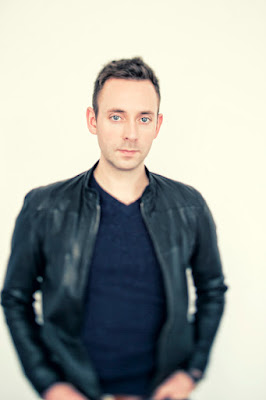Q. Blackout
is set during the most recent volcanic eruption in Iceland, which grounded
flights around Europe. Were you affected by it? Is the population of Iceland
concerned about volcanoes in general?
RJ: Almost everyone in the capital region was
affected by this eruption, even though it took place in the south, because of
the volcanic ash which really polluted the air for a considerable period of
time. The worst day in Reykjavik was actually the day described at the
beginning of Blackout, when the sky literally turned black. I think it’s safe
to say that the population is aware of the threat of the volcanoes, rather than
being concerned.
Q. In Blackout,
you introduce a new protagonist, who features alongside Ari Thor. Will we
see her again?
RJ: Yes, indeed, Ísrún will return in Rupture, where she is working on
investigating a murder and kidnapping in Reykjavik while also helping Ari Thor
with his investigations into a cold case up in Siglufjordur.
Q. Your series has been sold in at least 15
languages so far. Did this come as a surprise? How did you feel when Snowblind entered the bestseller lists
in France during publication week?
RJ: I was really pleased to see Snowblind enter the bestseller lists in
France, and every single territory we’ve sold the books to has been a cause for
celebration. I’m so proud to see the books reach audiences in new countries.
The latest one is Morocco, in July, which I believe is territory no. 14.
Q: You investigate some dark, topical
themes in Blackout. How accurate are
they? Do you believe that good crime fiction should expose corruption and other
societal wrongs?
RJ: I don’t think there is any specific rule
in this regard for crime fiction, each book needs to be judged on its own
merit. In my series I however usually feel it necessary to tackle social issues
in one way or the other, perhaps in an attempt to make the narrative
believable, as the books are set in a very peaceful country. With regards to
accuracy, Blackout is completely
fictional, so the crime story is in no way based on real events.
Q: You translated 14 Agatha Christie novels
into Icelandic long before you began writing your own crime series. Were you
heavily influenced by her work and Golden Age Crime?
RJ: I think I must have been influenced by
Christie to some extent, as well as by other Golden Age writers which I’ve
admired. I try to make the plots plausible yet surprising, it’s important to me
to have some sort of a twist in the end, and this was an important feature in
the Golden Age. Also, it’s important to play fair to the reader. Christie was
also brilliant at setting, whether it was a snowbound country house or the
Orient Express, and in my books I’ve tried to make Siglufjordur, the setting,
as vivid as possible.
Q: You have a new TV series coming. Can you
tell us a little about this?
RJ: The TV rights to the Dark Iceland series
have been acquired by On the Corner, the producers of Academy Award winning
documentary Amy. They have a very
clear vision on how they want to bring the stories to the screen, so I feel
confident that Ari Thor and the series are in good hands.
Q: There are two more titles in the Dark
Iceland series to be published, and you have a new series, beginning with
Dimma. Can you tell us a little more about the new series? And will you be back
with Ari Thor?
RJ: The new series deals with a policewoman,
Hulda, who is 64 years old and about to retire at the start of Dimma, so the
first book is essentially about her last case, an investigation into a cold case,
the death of a young asylum seeker in Iceland. As to Ari Thor, who knows.
More information about Ragnar Jónasson and his writing can be found on his website. You can also follow him on Twitter @ragnarjo



No comments:
Post a Comment